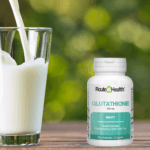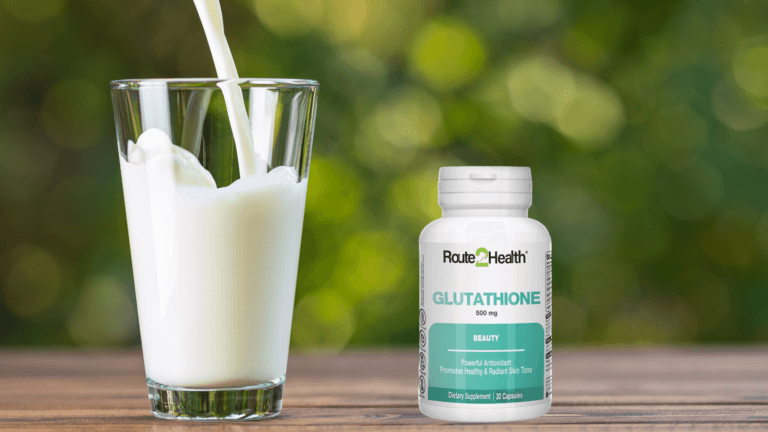
Berdi
urinary Track Health
Are you tired of feeling like your chest is hosting a never-ending traffic jam? At some point in your life, you must have experienced the discomfort of chest congestion. Whether it’s due to a common cold, allergies, or respiratory infections, chest congestion can make breathing difficult and disrupt our daily activities. But can you get rid of chest congestion with any remedy?
Understanding the causes, symptoms, and treatment options for chest congestion is essential in managing this condition effectively.
Chest congestion refers to the condition where there is an accumulation of excess mucus in the airways and lungs, causing discomfort and difficulty in breathing. It is often a symptom of respiratory infections, allergies, or other underlying conditions. Understanding the causes, symptoms, and treatment options for chest congestion is essential in managing this condition effectively. By addressing chest congestion through appropriate remedies and treatments, you can experience relief and improved respiratory health.
Before understanding how to relieve chest congestion, you need first to understand the causes of chest congestion. Chest congestion occurs when excess mucus accumulates in the airways and the lungs. It can be caused by various factors, including:
Identifying the symptoms of chest congestion is crucial before knowing how to relieve chest congestion. While chest congestion itself is a common symptom, it is often accompanied by other signs and you can find out what chest congestion feels like below:

You can relieve chest congestion with several home remedies that can help, over-the-counter medications, and tablets.
You can obviously treat chest congestion by staying hydrated. Staying hydrated can help relieve congestion by thinning mucus and promoting its expulsion from the respiratory tract. When you are dehydrated, the mucus in your airways becomes thick and sticky, making it difficult to clear. Drinking plenty of fluids helps to hydrate your body and keep the mucus in your airways more liquid, making it easier to cough up or blow out.
Research has shown that proper hydration can positively affect respiratory health. Adequate hydration helps in reducing the viscosity of mucus, making it less sticky and easier to clear from the airways. Increasing fluid intake improves mucociliary clearance, which is how the respiratory system removes mucus and foreign particles.

Steam inhalation can help relieve congestion by moisturizing and soothing the respiratory passages, which can loosen mucus and ease expulsion. When you inhale steam, the warm moisture can help hydrate dry airways, reduce inflammation, and promote better airflow.
Additionally, steam inhalation can help soothe irritated tissues in the respiratory tract and reduce nasal congestion. The heat from the steam can help dilate blood vessels and increase blood flow, which can aid in reducing inflammation and swelling.

Hot compresses can temporarily relieve congestion by helping to relax the muscles, improve blood circulation, and reduce inflammation in the chest area. While I don’t have direct access to specific research studies, I can provide some general information on the topic.
Hot compresses or warm packs applied to the chest can help alleviate congestion through various mechanisms like muscle relaxation and improved blood circulation.

Warm fluids can relieve congestion by helping to thin mucus, soothe the throat, and promote nasal drainage. To experience the potential benefits of warm fluids for congestion relief:

Gargling with salt water can help relieve congestion by reducing inflammation, soothing the throat, and loosening mucus. The saltwater gargle works as a natural saline solution that can help cleanse the throat and nasal passages. Salt has natural anti-inflammatory properties that can help reduce swelling in the throat and nasal passages, which are often inflamed during congestion.
To gargle with salt water

Rest and sleep play a crucial role in chest congestion relief. When you rest and get adequate sleep, your body can focus its energy on healing and recovering from the underlying cause of congestion.
Rest and sleep are essential for a well-functioning immune system. When you’re well-rested, your immune system can better fight off infections and reduce inflammation that may contribute to congestion. During sleep, your body undergoes essential repair and regeneration processes. This includes repairing damaged tissues, producing immune cells, and regulating inflammatory responses. These processes contribute to overall healing and may help alleviate chest congestion.
Getting proper sleep can help regulate breathing patterns and promote better airflow through the airways. This can reduce the sensation of chest tightness and make breathing easier during periods of congestion. Ensure you create a comfortable sleep environment, maintain a consistent sleep schedule, and practice good sleep hygiene habits for optimal rest and recovery.

medication can help relieve chest congestion by targeting the underlying causes and symptoms. There are various types of medications that can be used to alleviate chest congestion, depending on the specific condition or cause. Here are some common medications used for congestion relief:

Medication like Prospan – Ivy Leaf Extract is the ultimate answer to how to relieve chest congestion. Prospan has 4-fold power to relieve your respiratory tract issues. Its clinically proven efficacy relieves symptoms through thinning and breaking up stubborn mucus. Prospan syrup works by dilating constricted bronchial tubes, relieving the urge to cough, and inhibiting inflammation.










©2023 Route2Health®️
NTN: 2229383
AN ASSOCIATED COMPANY OF HIGHNOON LABORATORIES
STRN: 0301999937728

WhatsApp us
